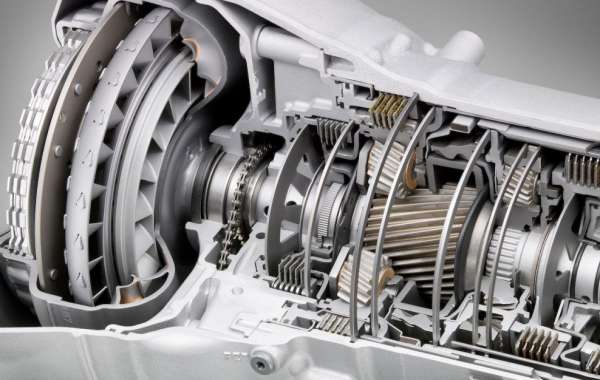Gear slippage is a common issue in vehicles that can significantly affect driving performance and safety. Whether you drive an automatic or manual transmission vehicle, detecting and addressing gear slippage promptly is essential to prevent further damage to the gearbox and ensure smooth operation on the road. In this comprehensive guide, we'll explore the causes, symptoms, diagnosis, and potential solutions for gear slippage, drawing insights from Gearbox Experts Dubai.
Understanding Gear Slippage
Gear slippage occurs when the transmission fails to maintain a consistent connection between the engine and the wheels. This results in noticeable jerks, delays in acceleration, RPM fluctuations, or even complete loss of power while driving. The severity of gear slippage can vary from occasional to persistent, depending on the underlying cause and condition of the gearbox.
Common Causes of Gear Slippage
- Low Transmission Fluid: Insufficient transmission fluid levels can lead to inadequate lubrication and hydraulic pressure within the gearbox, causing gears to slip.
- Worn Clutch (Manual Transmission): In manual transmissions, a worn clutch disc or pressure plate can prevent proper engagement between gears, resulting in slippage.
- Faulty Transmission Solenoid: Automatic transmissions rely on solenoids to control gear shifting. A malfunctioning solenoid can cause erratic gear changes and slippage.
- Damaged or Worn Gear Teeth: Over time, gears can wear down or develop damage, especially if the transmission is not maintained or subjected to excessive stress.
- Incorrect Transmission Fluid Type: Using the wrong type or low-quality transmission fluid can affect its viscosity and performance, leading to gear slippage.
Symptoms of Gear Slippage
Detecting gear slippage early can prevent more significant transmission problems. Look out for these common symptoms:
- Delayed or Rough Shifting: Gears may shift late or with noticeable jolts.
- High RPM with Reduced Speed: The engine revs higher than usual, but the vehicle struggles to accelerate.
- Loss of Power: Sudden loss of power during acceleration, especially when climbing hills or overtaking.
- Burning Smell: A burning odor could indicate overheating transmission fluid due to slippage.
Diagnosis of Gear Slippage
Diagnosing gear slippage typically requires a combination of visual inspection, diagnostic tests, and sometimes, the expertise of gearbox specialists:
- Visual Inspection: Check the transmission fluid level and condition. Low fluid levels or fluid that appears dark or burnt may indicate a problem.
- Diagnostic Scan: Use a diagnostic scanner to retrieve error codes from the vehicle's onboard computer. Codes related to transmission or gearbox issues can provide valuable insights into the root cause of slippage.
- Road Test: Perform a road test to observe the vehicle's behavior firsthand. Note any unusual noises, vibrations, or hesitations during acceleration and shifting.
- Pressure Tests: Conduct hydraulic pressure tests to assess the transmission's hydraulic system's functionality. Low or fluctuating pressure can indicate internal leaks or component failures.
- Visual Inspection of Gears: In some cases, gearbox experts may need to visually inspect the gears and clutch components for wear, damage, or misalignment.
Fixing Gear Slippage: Insights from Dubai Gearbox Experts
Based on insights from gearbox experts Dubai, here are potential solutions to address gear slippage:
Check and Change Transmission Fluid:
Ensure the transmission fluid is at the correct level and in good condition. Replace old or degraded fluid with the type recommended by the vehicle manufacturer.
Inspect and Replace Worn Clutch Components:
For manual transmissions, worn clutch discs, pressure plates, or release bearings may need replacement to restore proper gear engagement.
Repair or Replace Faulty Transmission Solenoids:
Replace malfunctioning solenoids responsible for gear control in automatic transmissions. This often requires accessing the transmission valve body.
Repair or Replace Damaged Gears:
If gears show signs of wear, chipping, or damage, gearbox specialists can repair or replace them to restore proper transmission operation.
Address Other Transmission Issues:
Resolve any additional transmission issues identified during diagnosis, such as leaks, damaged seals, or electrical faults affecting transmission performance.
Perform Software Updates:
In some cases, updating the transmission control module software can resolve issues related to gear slippage and improve overall transmission performance.
Preventative Maintenance Tips
To prevent future occurrences of gear slippage and extend the life of your vehicle's gearbox:
- Follow Manufacturer Recommendations: Adhere to recommended maintenance schedules for transmission fluid changes, inspections, and servicing.
- Use High-Quality Transmission Fluid: Use transmission fluid that meets or exceeds manufacturer specifications to ensure optimal performance and longevity.
- Avoid Overloading and Harsh Driving: Drive responsibly and avoid excessive loads or aggressive driving habits that can strain the transmission.
- Regular Inspections: Periodically inspect the transmission system for leaks, unusual noises, or changes in performance.
Conclusion
Gear slippage is a concerning issue that can affect the performance and safety of your vehicle. By understanding the causes, symptoms, diagnosis, and potential solutions outlined by gearbox experts Dubai, you can take proactive steps to address gear slippage promptly and effectively. Regular maintenance, timely repairs, and using the right transmission fluids are key to ensuring a smooth and reliable driving experience. If you encounter persistent gear slippage or are unsure about diagnosing and fixing transmission issues, consult a qualified gearbox specialist for professional assistance.



